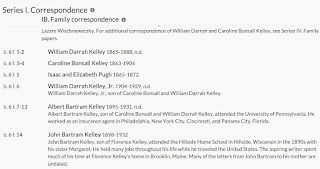I fled New York City, to escape my deranged and violent husband, Lazare Wischnewetzky, with my three children, Nicholas, my beloved Margaret, and John. I borrowed money for the train fare from a young woman who worked as a governess, and escaped in the middle of the night secretly, on my way to Chicago, where I became a new person, Mrs. Florence Kelley, Henry Demarest Lloyd and his wife, the beautiful Jesse Brosse Lloyd said: Of course we will take the children. The children will live with us. And I went to Hull House. Just like that, a spontaneous act of generosity. That was the kind of people they were. Jesse Brosse Lloyd was disowned by her own father when her husband wrote a letter in support of the Haymarket anarchists. Haymarket was the symbol of rebellion, too soon after the Civil War to be forgotten.
 |
| When Henry Demarest Lloyd came to Chicago, he was a recent graduate of Columbia University, a lawyer, a poet, and he took the town by storm with his brilliance, his erudition, and his passion for justice. Before long he was the literary editor and then the very well respected financial editor of The Chicago Tribune. [Source: Puublic domain. H29628 U.S. Copyright Office, Library of Congress] |


















